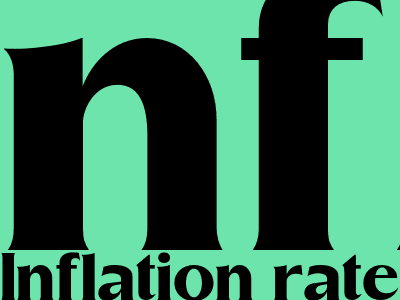
Canada's Inflation Rate Hits 40-Year High of 6.7% in March
Consumer Price Index Jumps 1.4% Month-over-Month, Largest Increase Since 1991
The Bank of Canada is widely expected to raise interest rates again next week in an effort to curb inflation.
Key Takeaways
- Canada's inflation rate hit a 40-year high of 6.7% in March, the highest level since January 1982.
- The Consumer Price Index (CPI) jumped 1.4% month-over-month in March, the largest increase since January 1991.
- The Bank of Canada is widely expected to raise interest rates by 50 basis points next week to 1.00%, the second increase in as many months.
Inflationary Pressures
The increase in inflation is being driven by a number of factors, including:
- Rising energy prices
- Supply chain disruptions
- Strong consumer demand
Energy prices have been a major contributor to inflation, with the CPI for energy rising 34.8% year-over-year in March.
Supply chain disruptions have also played a role, with many businesses struggling to get the goods and materials they need.
Strong consumer demand is also contributing to inflation, as Canadians are spending more money as the economy recovers from the COVID-19 pandemic.
Bank of Canada Response
The Bank of Canada is responsible for keeping inflation under control. The Bank's target inflation rate is 2.0%, and it uses interest rates to achieve this target.
The Bank has already raised interest rates once this year, and it is widely expected to raise rates again next week.
Raising interest rates makes it more expensive for businesses and consumers to borrow money. This can help to slow down economic growth and reduce inflation.
Impact on Canadians
The high inflation rate is having a significant impact on Canadians.
- The cost of living is rising, making it more difficult for Canadians to make ends meet.
- The value of savings is being eroded, as inflation eats away at the purchasing power of money.
- Businesses are facing higher costs, which can lead to job losses and higher prices for goods and services.
The Bank of Canada is taking steps to address the high inflation rate, but it is likely to take some time before inflation comes down to the Bank's target of 2.0%.
Sources
- Bank of Canada: Consumer Price Index - March 2022
- CBC News: Canada's inflation rate hits 40-year high of 6.7% in March